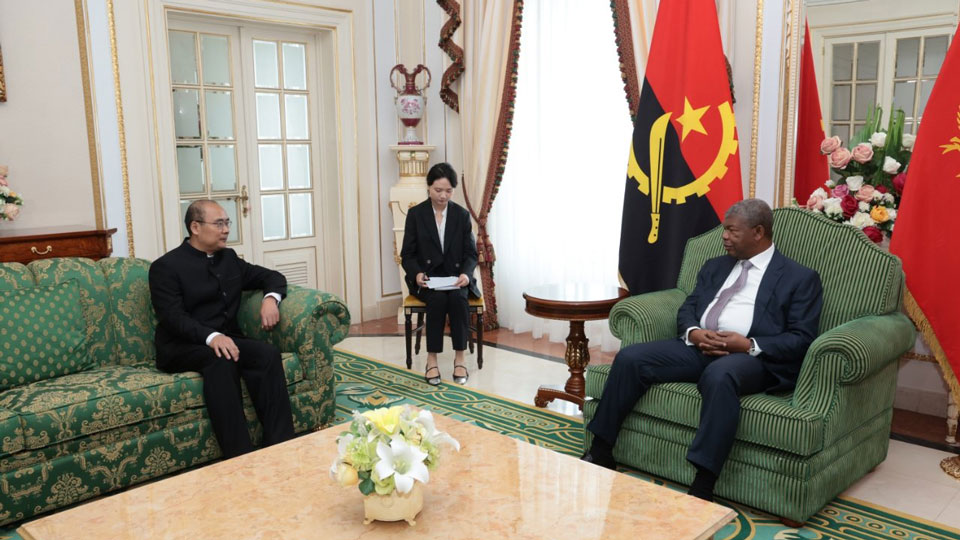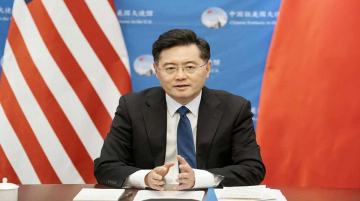
By Lukas Fiala
The arrival of China’s new ambassador, Zhang Bin, to Angola last week was barely noticed outside the niche community watching Chinese diplomacy. While this posting is reportedly Zhang’s first ambassadorial appointment, it is not his first in Angola. As Anthony Jarvis from the China Diplomatic Digest noted earlier this week, Zhang is not a newcomer to the African context, having spent time in Nigeria and also served as the Deputy Director-General of the Department of African Affairs at China’s Ministry of Foreign Affairs.
Appointing an ambassador with significant African experience and a background of working in Africa’s largest petro-state might signal greater engagement between the two countries in the oil sector. Indeed, oil constitutes around 90% of Angolan exports, and has long been the central element in bilateral trade. From 2005 to 2009, Angola was China’s second-largest source of oil imports after Saudi Arabia. With China’s history of buying the majority of Angolan crude, it is unsurprising that Angolan elites have long attached significant importance to their relationship with Beijing.
Yet, as Zhang is settling into his posting in Luanda, he will likely see a different bilateral relationship in a different international setting than during his last appointment in 2013. The early days of the “Angola model,” as it would be known, were shaped by an alignment of interests between Angolan elites in need of capital after the civil war ended and China’s thirst for crude in the early 2000s.
As academics Marcus Power and Ana Alves remind us in a seminal book on Angola-China relations, the ensuing convergence of interests between Chinese and Angolan stakeholders led to the development of complex and often opaque business networks so characteristic of the decentralized nature of the early days of “Going Out.” An abundance of foreign capital and little to no checks and balances within the state-owned oil firm Sonangol encouraged support for President dos Santos’ kleptocratic regime.
However, many factors point to a new juncture in the bilateral relationship with the Dos Santos family’s grip on power waning under incumbent president Lourenço. Today, China is a global power that has diversified its energy imports considerably. With access to reliable partners such as Saudi Arabia and, most importantly, Russia in the context of the latter’s isolation from Western markets due to its war in Ukraine, Beijing has more options than in the early 2000s.
Not only does China have more options, but Beijing’s appetite to invest in frontier markets and deal with ensuing economic externalities, corruption, and instability has also subsided to a certain degree over the last few years. While this partly reflects China’s domestic economic slowdown, it is also a product of a conscious shift away from unproductive large-scale infrastructure financing — what Xi Jinping identified as “vanity projects” — towards a smaller and more sustainable foreign economic footprint.
As Beijing is curbing the excesses of “Going Out” and the Belt and Road Initiative, Ambassador Zhang will likely be kept busy understanding and engaging Angola within China’s global debt collection efforts. As the most prominent African recipient of Chinese financing with 250+ loans amounting to over $45 billion, Zhang will likely need all hands on deck.
Finally, Zhang’s appointment is also interesting in the context of competition between the U.S. and China on the continent. The Benguela Railway that extends eastwards throughout Angola towards the DRC was rebuilt and financed by China from 2004 onwards. It is now part of an expansive U.S.-backed project linking Angola, the DRC, and Zambia in the context of accessing critical minerals that are key to everything from high technology to the green transition.
Once a beacon of China’s renewed economic and diplomatic outreach to the African continent in the early days of “Going Out,” Angola-China relations remain a case study to understand Beijing’s evolving priorities across the continent and the changing landscape of geopolitical competition.
Lukas Fiala is the project head of China Foresight at LSE IDEAS.










